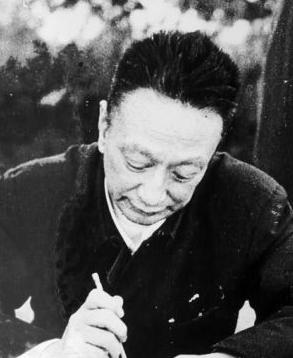History has its own life, it is like a person, both easy-going and self-respecting. ——Yu Qiuyu
The construction of new China cannot be separated from the efforts of the older generation, who have dedicated their lives, and the loyalty of most revolutionaries of the older generation to the motherland and the people cannot be doubted. However, there is an old revolutionary who is more special, he made great contributions to the construction of new China, once became an official to a vice premier, but after his death, the outside world has mixed praise and criticism of him, he is Ke Qingshi.

Ke Qingshi was born in 1902 in Shexian County, Anhui Province, and his father Ke Richang's cousin was Li Hongzhang's daughter-in-law, so Ke Richang served as a housekeeper in Li Hongzhang's house. Later, Li Hongzhang lost power, Ke Richang returned to his hometown to open a school, and Ke Qingshi became his first batch of students. In 1920, Ke Qingshi entered the Shanghai Overseas Chinese Society and joined the regiment in the same year. In 1922, as a delegate to the First Congress of Communist Parties and National Revolutionary Groups of the Far East held in Moscow, he was personally received by Lenin, and the two shook hands cordially, Ke Qingshi was the only person in the history of the Party to receive this honor, and in the same year he joined the Communist Party of China.
After that, Ke Qingshi served in the Shanghai Communist Youth League and established the Anqing and Wuhu Youth League organizations. Since then, he has successively served as the secretary of the Anhui Provincial CPC Committee, the secretary of the CPC Shanghai Zhabei District CPC Committee, the director of the Political Department of the Eighth Red Army, and the secretary general of the CPC Central Committee, with outstanding work ability. In 1937, he had gone to Yan'an to serve as vice president of the Party School of the CPC Central Committee and deputy director of the United Front Work Department of the CPC Central Committee. Once, during his tenure, his pants were torn and his neighbors only had red cloth, so he walked around wearing a pair of cotton pants with red patches, and still worked everywhere.
However, such a simple revolutionary was named and confessed at a party censorship meeting during the Yan'an rectification, and after such a thing spread, some people who had had festivals with him came to expose him, although most of them had no accurate evidence, he was still tortured, and his wife Tanru also committed suicide because of the impact, and later restored his reputation under the sponsorship of the great man.
In 1945, Ke Qingshi was again entrusted with a heavy responsibility as deputy director of the Financial Committee of the Jin-Cha-Ji Border Region Administrative Committee. After that, he worked more seriously and responsibly, and in November 1954, he became the secretary of the Shanghai Bureau of the CPC Central Committee, known as the "King of Shanghai". His style of work is very worthy of recognition: First, he is strict in his requirements and acts with vigor and vigor. Almost all of his cadres have been criticized by him; the second is that they are hard and simple, frugal and incorruptible, always wear round cloth shoes, their clothes are very ordinary, and they do not like to appear in the media.
The great man has always admired him very much, and one of his articles, "Riding the Wind and Waves, Accelerating the Construction of a Socialist New Shanghai!" " was highly praised by great men. In 1958, the great man also had the idea of making Ke Qingshi the prime minister, but it was not realized. In January 1965, Ke Qingshi was appointed Vice Premier of the State Council.
Originally, Ke Lao should have shown his skills and continued to contribute to the country and continue to serve the people, but no one expected that after only a few months of service, he fell ill at the post and finally died on April 9, 1965, at the age of 63.
Ke Lao has four mottos: firm revolutionary will, tenacious fighting spirit; fiery class feelings, strict scientific attitude. After the death of such an old man, the central government held a solemn public sacrifice meeting for him, and the ashes were buried in the Babaoshan Cemetery. In 1998, Ke Qingshi's daughter applied to the central government to move her tomb back to her hometown for burial, and the Party Central Committee approved the request, and Ke Qingshi's ashes were removed from babaoshan Cemetery.
But we said at the beginning that In people's minds, Ke Qingshi seems to be an important figure who has been put on a coffin but has not been determined, and people have mixed evaluations of him. It turned out that some people said that he was highly respected, self-disciplined, and diligent and dedicated his life, while others said that he specialized in "whole people" and liked to blindly follow.
As a figure in history, Ke Lao exists objectively, and we cannot smear or smear at will. A person's thoughts, work, life, and quality, like a pair of prisms, are not so simple to see clearly, and the evaluation of people is often benevolent, and the wise see wisdom.